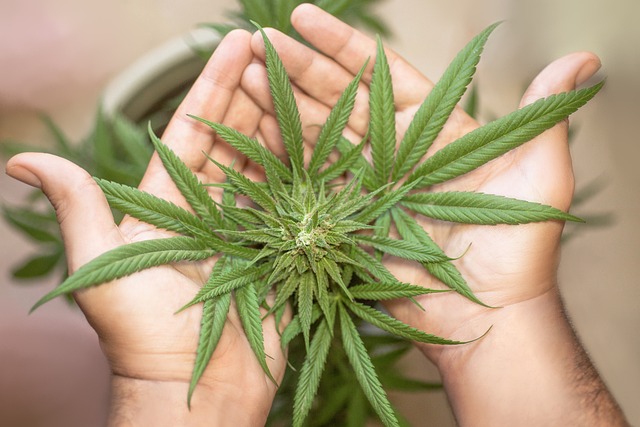Delta-9 tetrahydrocannabinolic acid (THCA), a non-psychoactive cannabinoid and precursor to THC, is gaining attention for its therapeutic properties including anti-inflammatory, neuroprotective, and analgesic effects. As of early 2023, the legal landscape in Australia has evolved to permit THCA flowers in certain states, provided they contain less than a specified amount of THC. This development is significant for medical cannabis patients and practitioners in states like New South Wales and Victoria, where THCA can be used under medical supervision with a prescription. The evolving legislation in Australia reflects a growing acceptance of cannabinoid therapies, particularly THCA, which offers a non-psychoactive alternative to traditional treatments. This shift facilitates further research into THCA's potential benefits and its integration into wellness and medical practices within the legal frameworks of various Australian states.
Explore the emerging wellness trend centered around THCA flower, a cannabinoid that holds significant promise for health and wellbeing. This article delves into the multifaceted benefits of THCA, the non-psychoactive precursor to THC, legal in various Australian states. From its potential therapeutic effects to its role in pain management and mood enhancement, we’ll unravel the science behind this cannabinoid. Discover how THCA flower might offer anti-inflammatory properties, act as a neuroprotectant, and serve as an antioxidant. With expert insights and practical guidance on incorporating THCA flower into your wellness routine, this comprehensive overview will shed light on why this natural compound is gaining attention across the health spectrum.
Unlocking THCA's Potential: A Comprehensive Overview

Delta-9 tetrahydrocannabinolic acid, commonly known as THCA, is a non-psychoactive cannabinoid found in raw cannabis plants and has garnered attention for its potential health benefits. As legislation evolves, particularly in certain Australian states, the exploration of THCA’s properties becomes more accessible for researchers and consumers alike. THCA is the acidic precursor to the well-known psychoactive compound Delta-9 THC and offers a range of therapeutic effects without the psychotropic elements. Preliminary studies suggest that THCA may possess anti-inflammatory, anti-nausea, anti-emetic, and neuroprotective qualities, making it a subject of interest for various health applications. As of recent updates, regulations regarding cannabis products vary across Australian states, with some permitting the use of THCA-rich products for medicinal purposes under certain conditions. This legal landscape opens up avenues for further investigation into the potential benefits of THCA, potentially offering a natural alternative for those seeking relief from various conditions without the mind-altering effects associated with Delta-9 THC.
What is THCA and Why is it Gaining Attention?

delta-9-tetrahydrocannabinolic acid, commonly known as THCA, is a naturally occurring compound found in the cannabis plant. While it’s the precursor to the well-known psychoactive substance delta-9-THC, THCA itself is non-psychoactive and has been gaining attention for its potential therapeutic properties. Researchers are exploring its benefits, which may include anti-inflammatory, neuroprotective, and analgesic effects. As scientific interest in cannabinoids grows, so does the recognition of THCA’s potential advantages.
In Australia, the legal status of THCA is subject to the stringent regulations that govern all cannabis derivatives. As of my knowledge cutoff in early 2023, THCA flowers are legal in certain Australian states provided they contain less than a specific threshold of THC (delta-9-THC). States like New South Wales and Victoria have established medical cannabis programs that allow for the use of THCA flowers under a doctor’s prescription. The therapeutic potential of THCA has sparked interest among healthcare professionals and patients looking for alternative treatments for various conditions, leading to increased research and legal considerations within the country. This has paved the way for further exploration into how THCA might be utilized in wellness and medical practices, reflecting a growing acceptance of cannabinoid-based therapies where regulations permit.
In conclusion, the emergence of THCA as a subject of interest within the health and wellness sphere offers promising insights into its potential benefits, particularly for those seeking natural alternatives for various ailments. While research is still evolving, understanding the legal status of THCA in Australia’s states is crucial for consumers and regulators alike. As legislative frameworks continue to adapt to the evolving landscape of cannabinoid research, the therapeutic properties of THCA are poised to be more fully realized and utilized. It is an exciting time for exploration into this non-psychoactive compound, with its legal standing in various states paving the way for further scientific discovery and potential health benefits that could significantly impact wellbeing.
